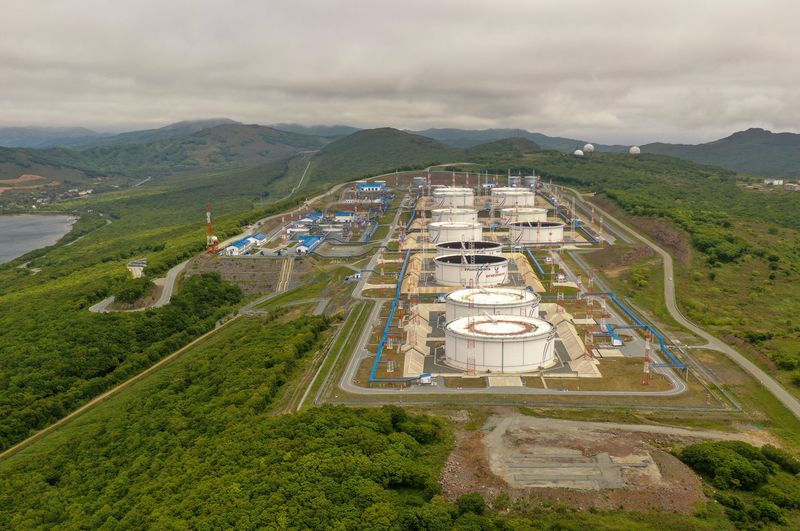
By Yuka Obayashi
TOKYO (Reuters) – Oil prices rose on Monday, paring last week’s loss, on fears of a widening conflict in the Middle East following a rocket strike in the Israeli-occupied Golan Heights, which Israel and the United States blamed on Lebanese armed group Hezbollah.
Brent crude futures gained 20 cents, or 0.3%, to $81.33 a barrel at 0010 GMT. U.S. West Texas Intermediate (WTI) crude futures climbed 9 cents, or 0.1%, to $77.25 a barrel.
Last week, Brent lost 1.8% while WTI fell 3.7% on sagging Chinese demand and hopes of a Gaza ceasefire agreement.
On Sunday, Israel’s security cabinet authorised Prime Minister Benjamin Netanyahu’s government to decide on the “manner and timing” of a response to the Saturday’s rocket strike in the Golan Heights that killed 12 teenagers and children.
Iran-backed Hezbollah denied responsibility for the attack, the deadliest in Israel or Israeli-annexed territory since Palestinian militant group Hamas’ Oct. 7 assault sparked the war in Gaza. That conflict has spread to several fronts and risks spilling into a wider regional conflict.
Israel has vowed retaliation against Hezbollah in Lebanon, and Israeli jets hit targets in southern Lebanon on Sunday.
“Worries over escalating tensions in the Middle East prompted fresh buying, but gains were limited by lingering concerns of weakening demand in China,” said Toshitaka Tazawa, an analyst at Fujitomi Securities.
Over the past few weeks, hopes of a ceasefire in Gaza have been gaining momentum.
But Israel wants changes in a plan for a Gaza truce and the release of hostages by Hamas, complicating a deal to halt nine months of combat that have devastated the enclave, according to a Western official, a Palestinian and two Egyptian sources.

On the demand side, data released earlier this month showing that China’s total fuel oil imports dropped 11% in the first half of 2024 have raised concern about the wider demand outlook in China, the world’s biggest crude importer.
Meanwhile, U.S. energy firms last week added oil and natural gas rigs for a second week in a row, boosting the monthly count by the most since November 2022, energy services firm Baker Hughes said in its closely followed report on Friday.
This post is originally published on INVESTING.


